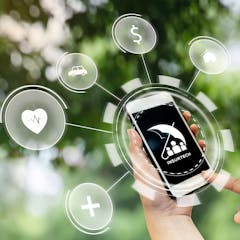
Articles on Data privacy
Displaying 41 - 60 of 281 articles

If you’ve been affected by the Optus data breach, the danger is far from over – no matter what the purported hacker is claiming.

Facial recognition technology has set us on a path to mass surveillance – but it’s not too late to change course.

Up to 9.8 million Australians have been affected. Here’s what you can do to proactively defend yourself.

The terms of the Australian Privacy Principle 3.6 are quite clear. So why is there not a single published case of this law being enforced?

Even a burner phone paid for with cash can reveal your identity and where you’ve been. A data privacy expert explains.

Data collection is big business in the US, but a bipartisan data privacy bill rapidly moving through Congress promises to affect the information websites, social media platforms and all other businesses collect.

A privacy researcher found a ‘code injection’ that allows Instagram and Facebook to collect sensitive user data, including passwords and credit card details.

One Medical provides primary healthcare services to people across the US.

It would take huge numbers of people submitting bad data to affect the algorithms behind period tracking apps, but even then it would be more harmful than helpful.

TikTok has admitted its Chinese employees have access to user data collected outside China.

American women are deleting period trackers after the end of Roe v. Wade, but evading digital surveillance will be almost impossible without changes to privacy regulations.

There’s little transparency surrounding how insurance firms collect, analyse and use our personal data when they establish insurance costs.

An integrative cybersecurity and data protection program will help firms adjust their management protocols and be better prepared for future cybersecurity trends.

Even a burner phone paid for with cash can reveal your identity and where you’ve been. A data privacy expert explains.

Data privacy is an abstract issue for most people, even though virtually everyone is at risk. Now that abortion may become illegal in some states, digital surveillance could take an even darker turn.

The social media strategies of many parties and candidates aim to bypass mainstream media to speak directly to voters, but they are often not as sophisticated as is assumed.

Consumers should have more control over how online marketplaces such as eBay and Amazon collect and use their data, according to a new ACCC report.

Cloud services are convenient, but if an organization isn’t careful about how it uses them, the services can also give data thieves an opening.

Mental health charities that provide support via text message have come under fire for sharing users anonymised data.

Internet-connected appliances tempt people with science fictionlike conveniences, but beneath the sparkling surface lurk potential privacy violations.
